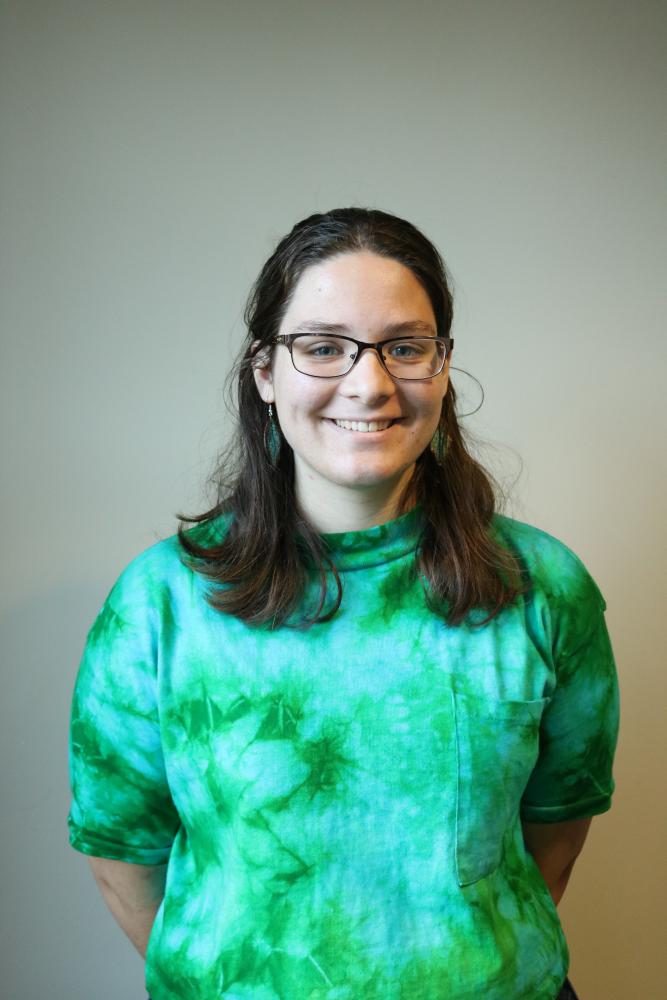“Love, Simon” is enjoyable and important
Art reflects our experiences. Movies tell us stories we can relate to, laugh at, cry to. Hollywood seems to have begun understanding that the audience, the very world, is not made up of only straight, cis, white people anymore. Slowly, we are getting movies that represent different identities and tell unique stories.
Going in to see “Love, Simon,” I didn’t know what to expect. I knew it was a movie about a gay teenager still closeted in high school, but I didn’t know that it would be the funny, charming and heartfelt film I saw.
“Love, Simon,” follows high school senior, Simon, played by Nick Robinson, as he navigates high school with his small, but close, friend group. Shortly after the start, Simon gets a call from his best friend, Leah, played by Katherine Langford, about a post on a fictional social media site where an anonymous person, “Blue,” has said he is gay.
From here, Simon creates the persona of “Jacques” and emails Blue. The two exchange emails, sharing their opinions on Halloween Oreos, talking about their first crushes and discussing their day-to-day lives Throughout, Simon tries to figure out Blue’s identity. The mystery carries the viewer along, questioning each person the camera pans over. There are three main suspected “Blues,” all of whom have different backgrounds and stories, different reasons for being suspected by Simon.
The film features people of color in both main and supporting roles, though the main character is a middle-class, young. white boy. The only openly gay character at the beginning of the film is Ethan, a black boy confident in himself who responds with sharp wit when the bigoted characters of the film make homophobic comments.
The characters are mostly believable and nuanced, avoiding the traditional high school stereotypes often found in movies like this. The love interest is not another white person, but a gay, Jewish, black student named Bram, played by Keiynan Lonsdale.
One of the surprises of the film was the sexuality of Simon’s best friend, who is revealed to be straight. There were hints that she might be interested in another one of her friends, including a scene in which she looks at Abby, played by Alexandra Shipp, dressed in a Wonder Woman costume. She excuses herself in either jealousy or embarrassment of her attraction.
The main conflict comes from a straight boy, Martin, played by Logan Miller. He finds Simon’s emails on a library computer and threatens throughout to blackmail him if he does not help him “get” Simon’s friend Abby. Simon makes mistakes and jeopardizes friendships in his attempt to keep his sexuality a secret.
In a time when our culture may be more accepting of queer people in general, that does not give anyone the right to out someone. Coming out is a highly personal process, and the film takes it seriously. Even in a mostly accepting environment, coming out is, as Simon explores, unfair and incredibly difficult for many people. Some reactions are negative, some are positive and all are believable. Simon’s parents, played by Jennifer Garner and Duhamel, portray the nuance of how a familial relationship does and doesn’t change after a child comes out. Simon’s mother says, after his coming out, “You can exhale now.” Coming out isn’t a tragedy, and this film celebrates the embracing of Simon’s identity after a journey of learning to accept himself.
We need more stories about marginalized communities and the intersections within those, and this film is a step in the right direction. We should allow this movie to exist as it is and hope to see it as a gateway into more stories. We cannot expect this story to tell the story of every queer person’s experience, but instead allow it to tell Simon’s specific story. We have one lighthearted, happy mainstream movie about a queer person. From here, we should demand more underrepresented, neglected narratives. People deserve to see themselves on screen, to feel connected to the media that surrounds us.
“Love, Simon,” has done that for a portion of the LGBTQIA community. Until there are even a fraction of films featuring queer people as there are ones featuring straight people, we must continue to demand the right to tell our stories and support those who share their stories with us. There are beautiful, intersectional queer stories entering the mainstream, and we deserve them and more. We can all exhale now.









